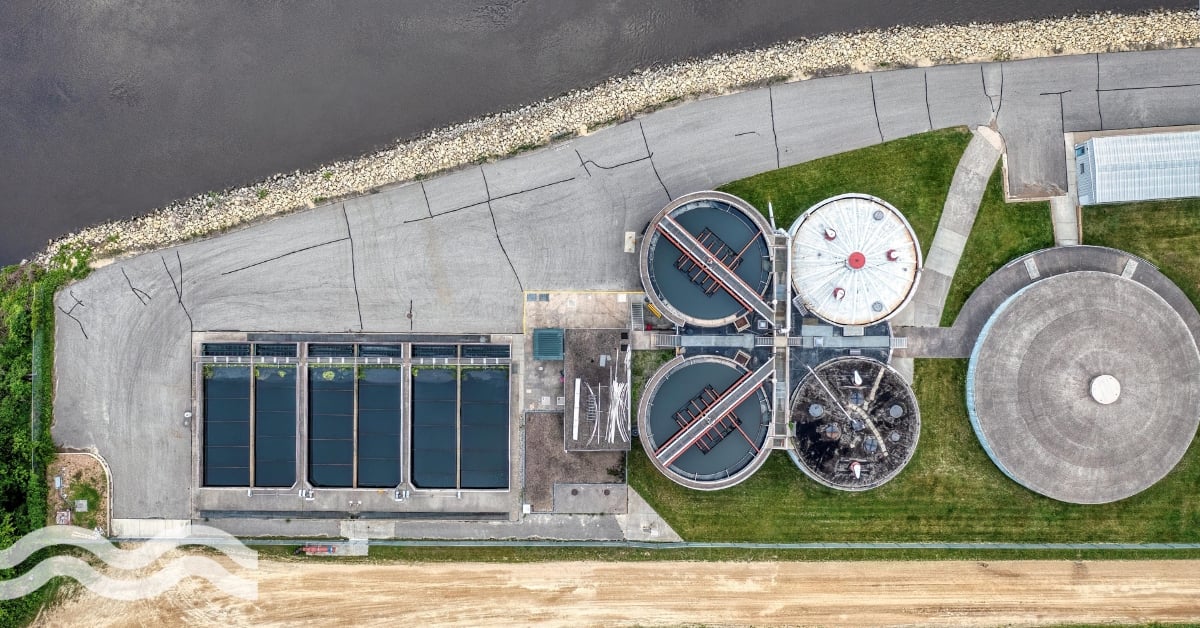.jpg?h=400&iar=0&w=1140)
Bluefield Research has released a report examining what the outcome of the US presidential elections would mean for the country's water industry.
Why the race to the White House matters
In the report, Reese Tisdale, president and CEO, Bluefield Research, said that the water industry was at a crucial juncture, and that whoever heads to the White House in November, faced many challenges from ageing infrastructure to climate-related risks.
He added that the analysis was in “response to a flurry of inquiries from Bluefield clients seeking to understand the impact of upcoming elections and potential effects on the policy landscape, infrastructure investments, supply chains, water quality management, and legal ramifications for municipal and industrial water and wastewater operators.”
The research paper specifically examines what impact each party might have should they win the election, in terms of impact on municipal utility service providers and industrial water and wastewater sectors. Of course, legislation and long-term policy planning will all be affected by the final make-up of the Senate and the House of Representatives, and whether either party exerts control.

A Kamala Harris-led Democratic win
Being the incumbent party, the Democrats are likely to continue with many of their existent policies. The authors of the report suggest 'incremental change'. Whether the withdrawal of President Biden from the election race, with Vice-President Kamala Harris now the party's candidate, will result in a change of policy or funding is unclear.
Under President Biden's administration, €57.7 billion from the Infrastructure Investment & Jobs Act (IIJA) was directed to clean and drinking water initiatives, including tackling Per- and polyfluoroalkyl substances (PFAS), State Revolving Funds (SRFs), the Water Infrastructure Finance and Innovation Act (WIFIA), Water Infrastructure Improvements for the Nation (WIIN) Act, and more.
The IIJA allocates roughly €6.8 billion for Water Infrastructure for the Nation, Water Recycling and Desalination, Water Storage and Conveyance, and WaterSMART Grants. The report suggests that the IIJA is likely to survive regardless of which party wins the election, as both are committed to infrastructure projects.
Other acts that impact on water and wastewater management include the Inflation Reduction Act (hydrogen, water for metal mining), the US Chips and Science Act (semiconductor fabrication water and wastewater treatment requirements), and more.
The report speculates that future policy might include further PFAS enforcement and effluent guidelines. An election win for Kamala Harris would also see the lead service line replacement continuing to fruition.

A Donald Trump-led Republican administration
The report's authors suggest things might take a different path should Donald Trump be elected for a second administration. Specifically, measures linked to tackling climate-related risk are likely to be scaled back, with Republicans and Democrats often on opposing sides when it comes to climate action.
The report suggests that a Trump administration would 'scale back select measures through administrative avenues and judicial challenges', thanks to an 'ineffectual Congress'.
With policymaking delegated to an appointed group of agency directors, the report suggests a weakening of the National Environmental Policy Act (EPA) through increased rates of 'permitting', allowing corporations and big business to avoid much of the Act's measures. The EPA is also likely to be subject to budget cuts and deregulation under a Trump administration.
Other policies likely to affect the water industry that could be slowed down or reassessed include the Inflation Reduction Act and some equity-related programs in the SRFs. The report notes that although the Clean and Drinking Water SRF program, which is utilised 'for water infrastructure investments with states, Tribes' is likely to remain a primary source of such funding regardless of administration, the current Republican House majority had at one time proposed cutting SRF appropriations by as much as 60 per cent for the 2024 fiscal year. This would have been the largest cut in the program's history.
Potential future water and wastewater applications in the nascent hydrogen energy industry would also be under threat from a Trump election win. As would the continued rollout of the lead service line replacement program.
What next for PFAS legislation?
One of the biggest topics in the water industry is the ongoing detection and destruction of PFAS 'forever chemicals'. As recently as May (2024), President Biden announced the introduction of the legally enforceable National Drinking Water Standards, as part of the EPA's PFAS Strategic Roadmap, with the aim of reducing 'PFAS exposure for approximately 100 million people, prevent thousands of deaths, and reduce tens of thousands of serious illnesses'.
Polluters must report the release of the two most common PFAS chemicals - perfluorooctanoic acid (PFOA) and perfluorooctanesulfonic acid (PFOS) – and the under terms of the CERCLA (Comprehensive Environmental Response, Compensation, and Liability Act) Act, the EPA has a strong tool to force polluters to pay for investigations and clean-up operations.
According to the Bluefield Research report, a Trump administration is likely to 'disrupt and delay PFAS regulation through administrative means and litigation roadblocks set forth by chemical manufacturers and affiliated industry groups'.
The National Environmental Policy Act (NEPA)
Another key differential between parties relates to The National Environmental Policy Act (NEPA). This federal law dates to 1970 and requires federal agencies to assess the environmental impacts, such as water availability, quality etc, of any proposed action before final decisions are made.
For example, whenever federal activities such as airports, buildings, military complexes, highways, parkland purchases are planned, environmental impacts assessments, including potential alternative options, must be conducted to inform the decision-making process.
During his first term as president, Donald Trump had made changes to the Act. However, these were reversed in 2022 by President Biden. It is fair to presume, as the research paper suggests, that a new Trump administration would seek to 'roll back' on NEPA requirements such as those focused on 'climate and social justice'. The research paper's authors conclude that this could lead to increase pollution, health risks and the destruction of rivers and streams.
To read the full report, visit: https://www.bluefieldresearch.com/


